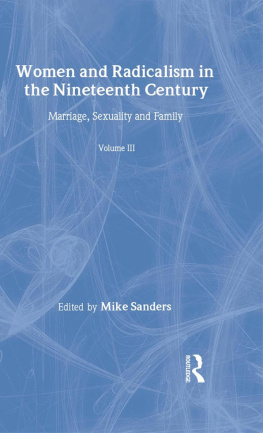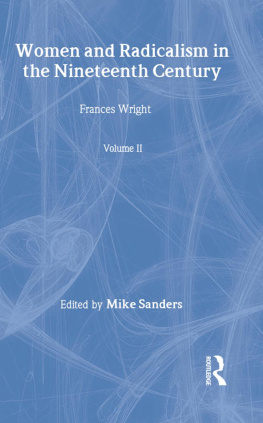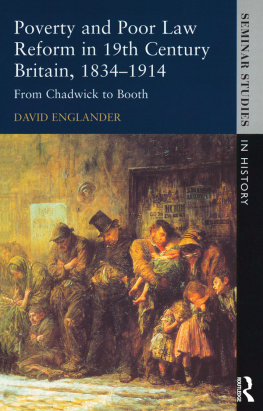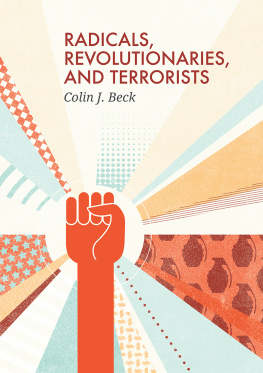First published 1999 by Ashgate Publishing
Reissued 2018 by Routledge
2 Park Square, Milton Park, Abingdon, Oxon OX14 4RN
711 Third Avenue, New York, NY 10017, USA
Routledge is an imprint of the Taylor & Francis Group, an informa business
This edition copyright 1999 by Eileen Groth Lyon.
The author has asserted her right under the Copyright, Designs and Patents Act, 1988, to be identified as the author of this work.
All rights reserved. No part of this book may be reprinted or reproduced or utilised in any form or by any electronic, mechanical, or other means, now known or hereafter invented, including photocopying and recording, or in any information storage or retrieval system, without permission in writing from the publishers.
Notice:
Product or corporate names may be trademarks or registered trademarks, and are used only for identification and explanation without intent to infringe.
Publishers Note
The publisher has gone to great lengths to ensure the quality of this reprint but points out that some imperfections in the original copies may be apparent.
Disclaimer
The publisher has made every effort to trace copyright holders and welcomes correspondence from those they have been unable to contact.
A Library of Congress record exists under LC control number: 99066319
ISBN 13: 978-1-138-32713-9 (hbk)
ISBN 13: 978-0-429-44942-0 (ebk)
It is with pleasure that I record my thanks to numerous individuals who have helped to make this book possible. Politicians in the Pulpit began as a Ph.D. thesis at the University of Cambridge. There, I benefited from the excellent supervision of David M. Thompson, who guided my research with wisdom and insight. My warmest thanks to him and his wife Margaret for all their encouragement and support throughout my time at Cambridge and beyond. David Hempton and Boyd Hilton served as examiners of the thesis and provided many suggestions which were invaluable as I sought to expand the scope of my original study.
I would also like to thank other individuals who offered suggestions, at various stages in my research, or commentary on papers that I presented: James Bradley, Richard Greaves, Bruce Kinzer, Frances Knight, Denis Paz, Peter Searby, Anne Secord, James Secord, Miles Taylor and Alexandra Walsham. I am particularly indebted to Adrian Johns and Alison Winter, who read and commented on this work at many different stages. Their generosity and painstaking efforts have greatly improved the final manuscript. Alec McAulay, Cathrin OSullivan and Ruth Peters at Ashgate Publishing have provided careful editorial assistance and guided me through the publication process. I am also grateful to Maxine Jones and other colleagues at Florida State University for their advice and support, and to George Muirhead for his continued interest and encouragement since my days as an undergraduate.
Many librarians and archivists have eased the path of my research. I wish to express my appreciation to the staffs at the following institutions at which 1 consulted manuscripts and rare books: Bedfordshire Record Office, Bedford; Beinecke Library, Yale University, New Haven, Connecticut; Bingley Library, Yorkshire; Birmingham Central Reference Library; Birmingham University Library; Blackburn Central Library; Bodleian Library, Oxford; The British Library; British Library of Political and Economic Science, London; Burnley Central Library; Butler Library, Columbia University, New York; Cambridge University Library; Cambridgeshire Country Record Office; Church of England Record Centre; Derby Local Studies Library, Derby; Dr Williamss Library, London; Dorset Country Archives Service, Dorchester; Dudley Archives and Local History Service, Dudley; Huntington Library, San Marino, California; Intemationaal Instituut Voor Sociale Geschiedenis, Amsterdam; Kidderminster Public Library; Lambeth Palace Library, London; Lambton Estate, Co. Durham; Lancashire Record Office, Preston; Leeds Central Reference Library; Leicestershire Record Office, Leicester; Library of Congress, Washington, D.C.; Manchester Central Library; Seeley Mudd Library, Yale University; National Library of Scotland, Edinburgh; National Library of Wales, Aberystwyth; Nebraska State Historical Society, Lincoln, Nebraska; New York Public Library; Newport Central Library; Norfolk Record Office, Norwich; Norwich Central Library; Paisley Abbey; Paisley Central Library; Power Loom Weavers and Textile Workers Union Archives, Kidderminster; Public Record Office: Chancery Lane and Kew, Surrey; St Johns College, Cambridge; School of Oriental and African Studies, London; Scottish Record Office, Edinburgh; Sheffield Archives; Sheffield Central Library; Society of Antiquaries, London; Sterling Memorial Library, Yale University; Suffolk County Record Office, Bury St Edmunds; Surrey Record Office: Guildford Muniment Room, Guildford and Kingston-upon-Thames; Tameside Local Studies Library; Trinity College, Cambridge; University College, London; University of London; Westminster College, Cambridge; West Yorkshire Archive Service: Leeds; Wisbech and Fenland Museum, Wisbech. In particular, I should like to thank the following individuals who shared their knowledge of uncatalogued material: Jane Rodgers, Rare Books and Manuscripts Library, Columbia University; Seth Kasten, Union Theological Seminary; and Julie-Anne Lambert, Johnson Collection, Bodleian Library.
Thanks are due also to Trinity College, Cambridge; the American Friends of Cambridge University; the Managers of the Prince Consort and Thirlwall Fund; and Florida State University for their generous financial support, without which this book could not have come to fruition.
And, finally, to my parents, Richard and Joyce Groth, and husband, Gordon Lyon, who have given assistance in so many different ways, I dedicate this book with my love and gratitude.
Eileen Groth Lyon
Tallahassee, Florida
June 1999
Unless a priest of the living God be a politician in the pulpit, the Wesleyan firebrand Joseph Rayner Stephens told his congregation in 1839, he has no business there at all.
For a generation steeped in the Bible - able to use it, quote it and recognize even the most fleeting references or turns of phrase from the Authorized Version, Nor has there been sufficient attention to the underlying beliefs that inspired such rhetoric.
By contrast, much work has demonstrated the importance of religion in the conservative arsenal. The recent work of Jonathan Clark, James Sack, Robert Hole and others The cumulative effect of such studies is to leave us with a skewed picture. This literature presents us with a culture in which conservatives owned Christianity and radicals were left with the option of mounting secular attacks on priestcraft. Once the true range of possibilities open to Christians and radicals is restored to the historical picture, a much more fluid situation is apparent in which a diverse range of political agendas could be served by the marshalling of Christian arguments. This book seeks to examine the use of religion as a catalyst and a new motivation for popular radicalism. In so doing, it will provide the beginnings of a framework for understanding the character of those entities that Stephens spoke of as a symbiotic body and soul.
Historically, the influence of religion on political and social issues has been an area of considerable debate. Contention over issues of Christian obedience and authority and the degree to which it was appropriate for Christians to become involved in politics, war and other secular matters had arisen at many points in British and European history.Scripture. The programme of Stephens and others was consciously formulated as an opposing posture. By the same token, the emergence of Christian radicalism elicited a conservative backlash on the part of others who turned to Scriptural exhortation as a means of providing a particularly challenging rebuke. A contest developed for the Christian ground.






